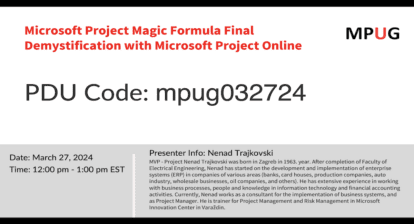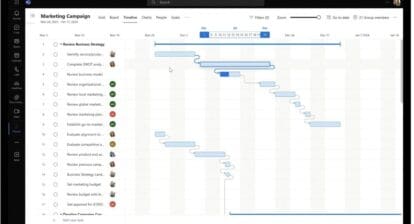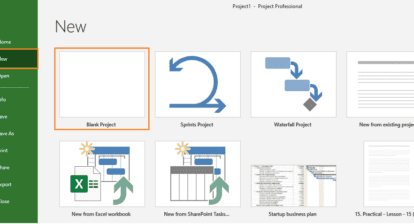The Fuzzy Front End
Project life cycle can take many forms; the waterfall model was the state of the art model for many years. Agile approaches are becoming the current state of the art while the Spiral model is still used successfully in many industries. Any project life cycle starts with the Fuzzy Front End – the initiation phase triggered by a new idea or a problem that needs a solution. The Fuzzy Front End leads to the most important decision in the project life cycle – the Go (a new project is initiated) or No-Go (the project is not approved) decision. The importance of this decision cannot be underestimated as it has strategic implications on the portfolio of projects performed by the organization, as well as project specific implications on the project risks and probability of success. Ben Franklin, the Great American inventor and statesman summarized it all by saying:” By failing to prepare, you are preparing to fail”.
The Benefits
Recent research published by the Construction Industry Institute (CII) based on a survey of 609 projects totaling $37 Billion, revealed that good Front End planning resulted in 10% cost reduction and 5% shorter project duration (CII Implementation Resource 166-3 version 4 December 2012). In addition to the cost and schedule improvements, Front End planning creates shared understanding among the members of the team performing the analysis. This shared understanding of Project Goals, performance measures, constraints and technological/operational alternatives for performing the project is critical for project success.
The fuzziness of the front end is a result of the knowledge gaps that tend to exist early on in the project life cycle. Understanding the sources of uncertainty and resulting risks as early as possible is extremely important, as these risks can be avoided or mitigated if properly analyzed early on.
The Solution
SandboxModel, together with the Technion Center for Project Management developed the PTB, a methodology and a set of tools that supports project Front End planning in three ways:
- A tool for data collection that helps the planning team by asking the correct questions and by presenting a hierarchy of project entities. The hierarchy includes the project scope, the product scope, scheduling and cost issues, issues related to the risks and a check list of data items needed for each level in the hierarchy. By providing a very flexible environment for structuring the project, team members can share individual knowledge from different technological and managerial disciplines and integrate it into the “big picture” of the project.
- A project analysis tool that uses the data collected in the first step to present different alternatives for the project and the resulting cost, benefit, schedule and risks associated with each possible course of action. By analyzing the different course of action and simulating possible project plans the team has an opportunity to perform a “dry run” of the project plan and to improve it by maximizing value and minimizing waste based on lessons learned.
- A well-structured process, including a workshop implementation that helps the team members share their knowledge and concerns, identify opportunities and risks and develop a shared understanding and a consensus based project plan that serves as a baseline.
Results and Conclusions
In a series of controlled experiments held at the Technion and MIT, teams using the methodology and the tools achieved improvements in project planning similar to those
reported by the Construction Industry Institute.
Front End planning is not an option, it’s a must. By using the right tools and the proper methodology Project Management Offices can introduce the Front End planning process efficiently and effectively, reaping the benefits at minimum cost.






